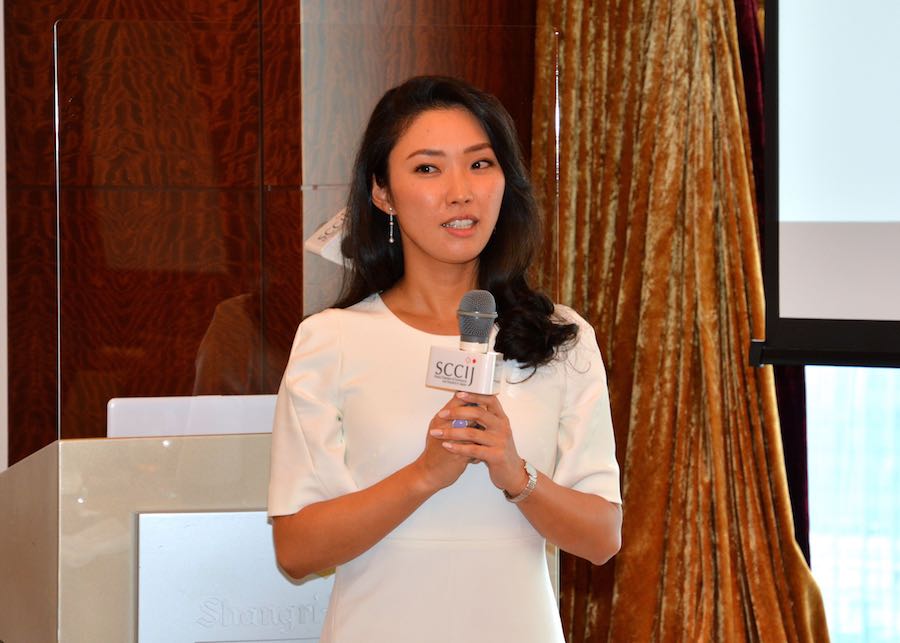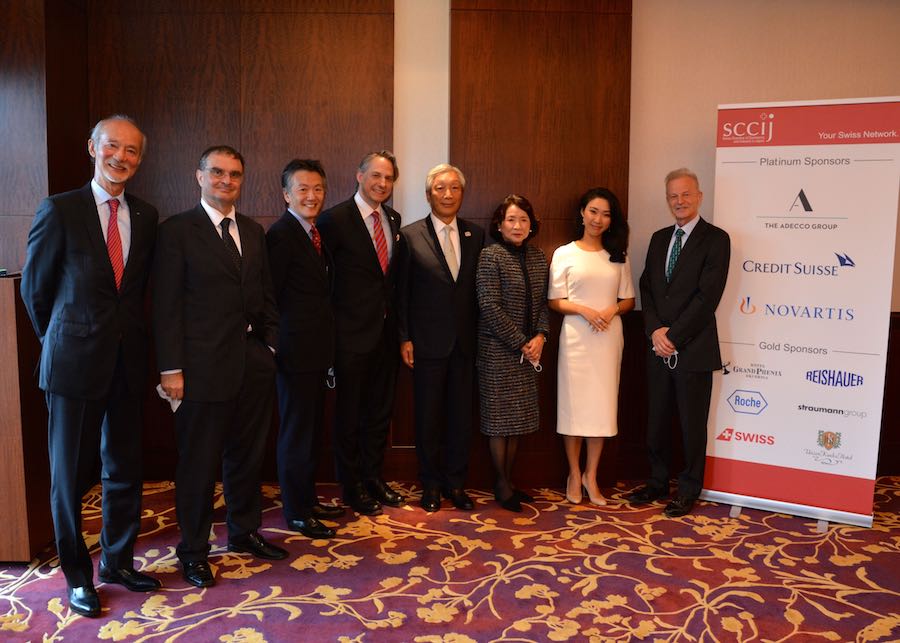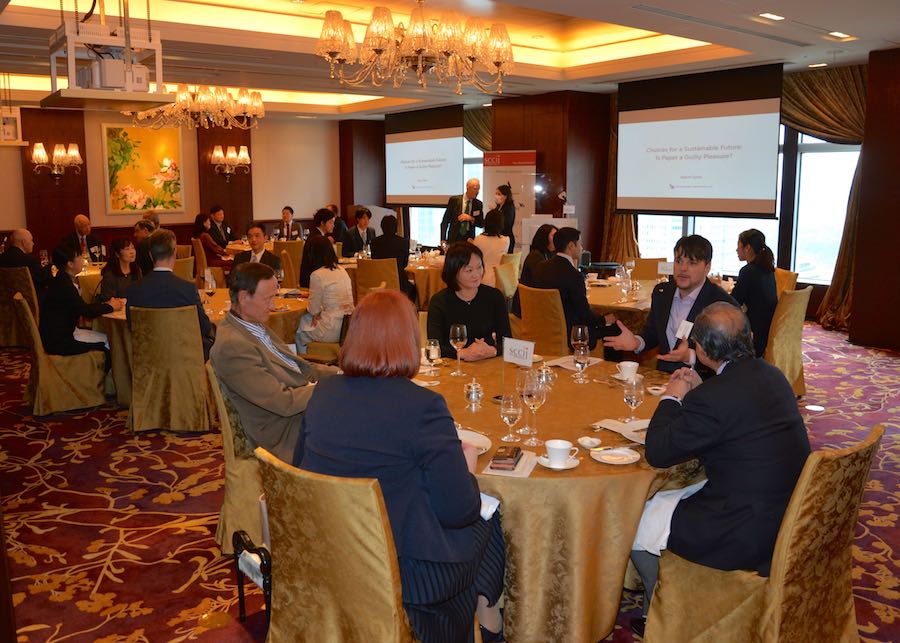Tokyo (SCCIJ) – Shall companies renounce paper and completely switch to digital means of communications for the sake of the planet? At the December Luncheon, Ms. Asami Sano, CEO of Shinnihon Printing, convincingly argued the case for sustainably sourced paper and environmentally friendly printing methods. Her company is an award-winning leader in this domain in Japan.

SCCIJ December Luncheon speaker Ms. Asami Sano, CEO of Shinnihon Printing, argued in favor of conscious use of paper.
Shikoku nature as inspiration
First, Ms. Sano introduced the beautiful nature around the company’s headquarters on the island of Shikoku to about 40 members and guests of the SCCIJ. “I grew up as part of nature and with a deep love of nature,” she said. Besides, her father and herself are former competitive skiers, which also made them mindful of the consequences of climate change. As a result, their family printing company has always been looking to protect the environment. “To reduce the ecological impact, we are willing to sacrifice profitability,” she stated. “In other words: Family values are above commercial value”.
Next, she compared the features of a season’s greeting card in print and email. In the case of a physical card, the recipient would emotionally respond to the envelope, the postage stamp, the handwriting, as well as the texture and scent of the paper, the speaker argued while opening an envelope with a card in her hands. “Now imagine receiving an electronic card – it is a bit underwhelming, right?” she said. Also, she pointed to traditional uses of paper in Japanese shoji and umbrellas and recent innovative paper products like straws replacing plastic ones, and even paper wine bottles.
Then, Ms. Sano addressed the question of whether paper is “a guilty pleasure”. One reason for guilt is deforestation. A forest size of 27 soccer fields is cut down every minute across the world. Deforestation shrank the Amazon rain forest by 12% in 33 years. But she explained that the need for paper pulp is not the main reason for deforestation. Instead, paper pulp can be sourced from responsibly managed forests. “Our challenge is to enjoy paper without causing a disadvantage for the planet,” she said.

Members and advisors of the SCCIJ Executive Board with luncheon speaker Ms. Asami Sano, CEO of Shinnihon Printing; to her left are her parents.
Steps to guilt-free paper use
Finally, Ms. Sano laid out three future solutions to printing and using paper sustainably. First, only utilize the certified “FSC accredited paper”. It is made from properly and strictly controlled forest wood, traceability is ensured in all production processes. “Choosing products with the FSC mark will help to protect the forest,” Ms. Sano said.
Second, switch to waterless printing. The ink used in this process is free of the harmful hydrocarbon chemicals utilized in traditional printing because it uses vegetable oils or other alternatives. Ms. Sano surprised many in the audience when she reported that out of 22,000 printing companies in Japan, only 0.4% are currently utilizing this technology. “Some of the reasons are higher costs, higher quality management, and the requirement of specialist knowledge,” she explained.
Third, offset the carbon impact of printing. After all, this industry causes 5.4% of Japan’s greenhouse gas emissions. But by investing in renewable energy sources and organizing deliberate afforestation, the production of greenhouse gases can be offset by measures that either reduce emissions or take carbon dioxide out of the atmosphere.

The SCCIJ December Luncheon followed Covid-19 prevention protocol by seating only five people at one table.
Choice for companies
After this review, Ms. Sano recommended that the users of printed material and paper should switch to printing companies with a smaller environmental footprint. According to Ms. Sano, European companies would be ahead in their ecological thinking by consistently using FSC paper and cleaner printing methods for all their office materials, whereas many Japanese companies would only print their public corporate material like the annual report in such a way.
Ms. Sano let the luncheon attendees discuss at each table which paper handling they considered superior. After a short discussion with statements from some luncheon tables, the majority of attendees voted to follow the European way which caused Ms. Sano to smile. At the end of the luncheon, all members and guests of the SCCIJ received a paper rucksack with some printed paper gifts from Ms. Sano’s company.
Biography of the Speaker
Ms. Asami Sano is the CEO of Shinnihon Printing, an award-winning pioneer of sustainable printing, since 2018. Inspired by the beautiful nature around their headquarters in Shikoku island, the last three generations of the Sano family have been dedicated to creating beautiful printed material while respecting our natural resources, through responsible paper sourcing, waterless printing, and carbon offsetting. Ms. Sano has a long-standing affinity for Switzerland, initially as a former competitive skier and later as she completed several courses at IMD Lausanne. She remains passionate about the Swiss Alps – a value shared between the Swiss and Japanese.
Text and photos: Martin Fritz for SCCIJ





























